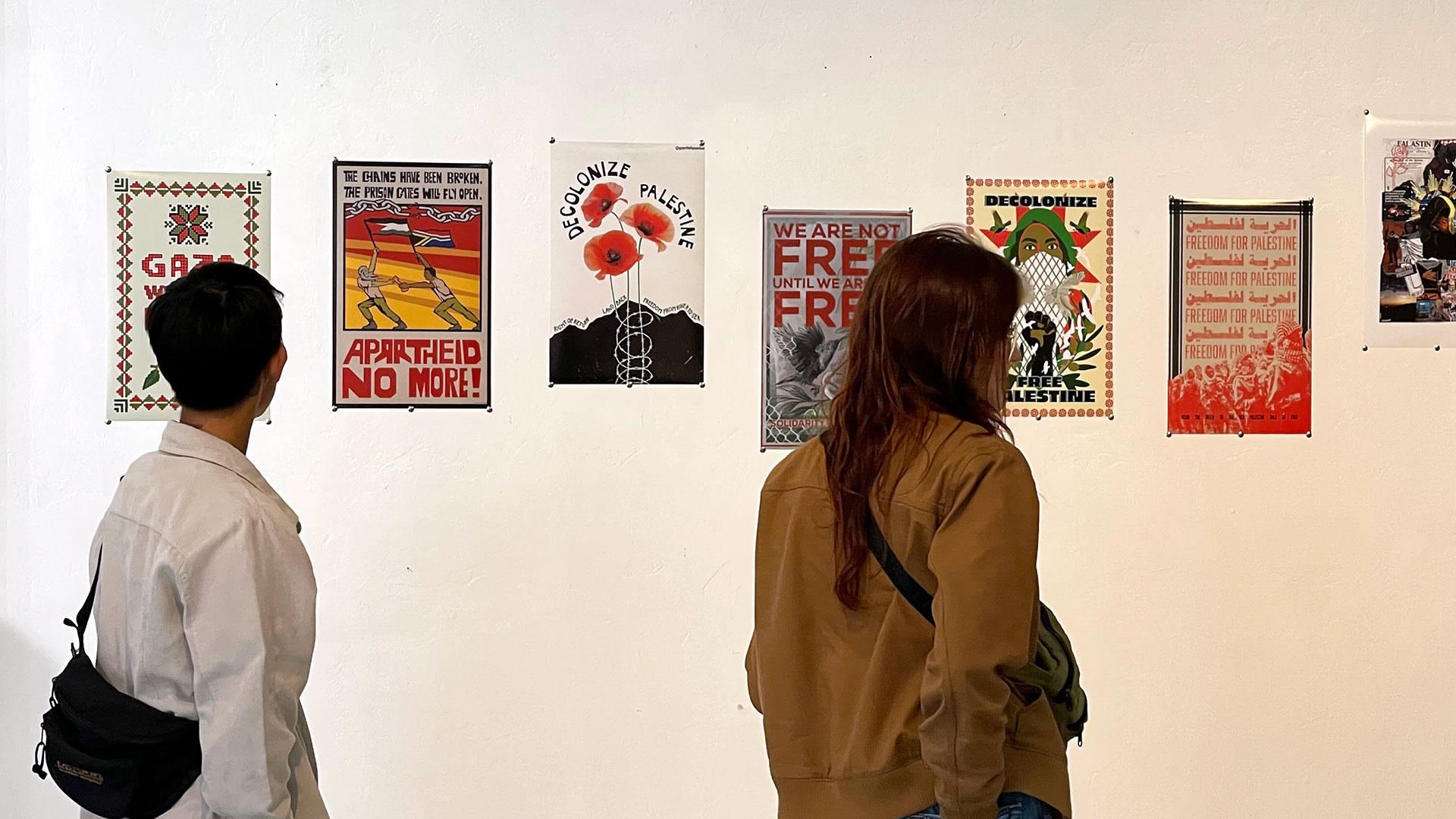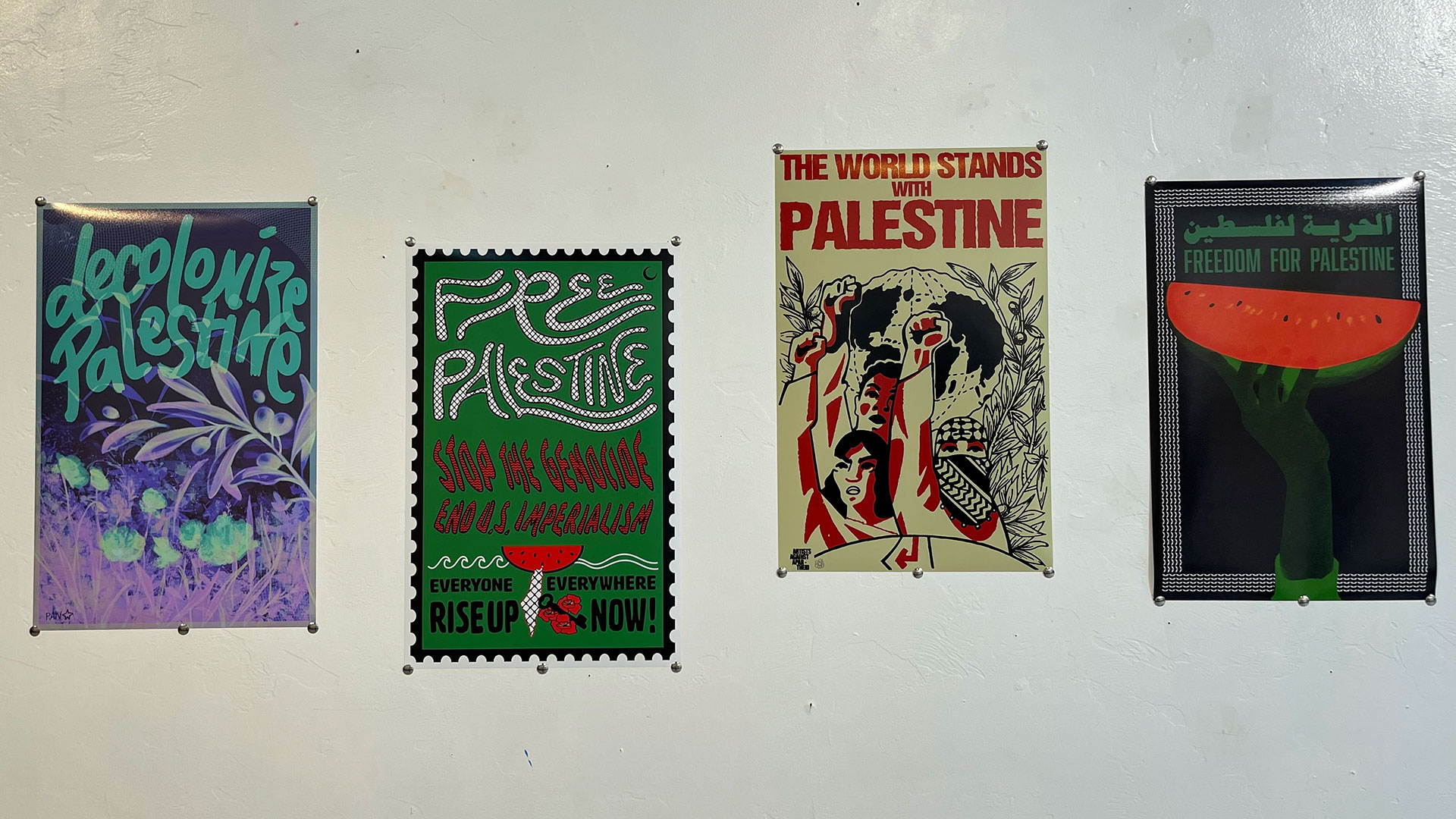 Two people view pro-Palestine posters displayed at &Gallery in Tucson, Ariz., on Saturday, Dec. 9, 2023.
Two people view pro-Palestine posters displayed at &Gallery in Tucson, Ariz., on Saturday, Dec. 9, 2023.
In the midst of thousands of attendees of the Fourth Avenue Winter Street Fair, posters of bright red, green, white, and black - the colors of the Palestinian flag - dotted the walls of Tucson’s &Gallery this weekend.
The posters were part of a collection curated by Artists Against Apartheid, an international coalition of creatives under the New York-based non-profit The People’s Forum, in an effort by Tucson artists to show solidarity with the people of Gaza.
According to Tucson artist and community organizer Harry Carlson, the exhibit is an example of how art can be a different, peaceful way to express ideas on divisive issues.
“This is a way to represent and show people that we can have these types of opinions and this voice in a way that's showing solidarity but is welcoming. I think that is another way to be inclusive, and not just have it be a political idea, but a universal and a world idea,” he said.
Carlson said the threat of arrest has clouded some demonstrations, including the arrest of KJZZ reporter Alisa Reznick and two dozen others at a pro-Palestinian protest Nov. 30.
 VIEW LARGER Four posters displaying pro-Palestinian messages on display at &Gallery in Tucson, Ariz., on Saturday, Dec. 9, 2023. The watermelon has been a symbol of Palestinian resistance since the 1960s.
VIEW LARGER Four posters displaying pro-Palestinian messages on display at &Gallery in Tucson, Ariz., on Saturday, Dec. 9, 2023. The watermelon has been a symbol of Palestinian resistance since the 1960s. As the conflict enters its third month, activists like Firoz Azizi of the Party for Socialist Liberation say that art is necessary in a moment of crisis.
“Artists here, showing solidarity with artists there, is very important because it reminds us that the Palestinians deserve to live and will continue to live, their culture will be preserved,” he said.
Depictions of the watermelon and its colors were numerous in the gallery. The fruit has a long history of being a symbol of resistance in the region, including being used as a stand-in flag when it became illegal to raise the real one in the 1960s.
“As a way of protest, they started using the watermelon, which incorporates all the colors of their flag to represent themselves in their struggle,” Carlson said.
Its use has increased on social media platforms after this year’s Oct. 7 attack to circumvent algorithmic censorship of discussion of the Israel-Palestine conflict.
The event took place shortly after the US vetoed a UN Security Council’s resolution for a humanitarian ceasefire last week, saying the proposal did not adequately condemn the actions of Hamas. The decision has drawn criticism from humanitarian groups as it highlights the US as one of the only remaining major world powers not calling for a ceasefire.

By submitting your comments, you hereby give AZPM the right to post your comments and potentially use them in any other form of media operated by this institution.